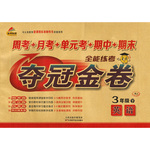题目内容
Even when you’re extremely busy, you aren’t using your time with 100% efficiency. There are gaps in everyone’s schedule where they aren’t doing anything important. Even if your schedule has no gaps, there is probably lots of time when you aren’t working as fast or as effectively as you possibly could.
Why aren’t you completely efficient? It’s because time isn’t the limiting factor. If it were the limiting factor, people could work non-stop without breaks or any unproductive distractions(消遣). Instead, people, even those who are highly productive, need to take breaks, occasionally procrastinate (拖延) and slow down on tasks throughout the day.
The real and most important limiting factor for productivity is your energy levels to pay attention. Energy levels limit your productivity because when you’re tired, you can have enough time and still not get everything done. Your attention ability is also limited, because even if there are a million things that need to be done, you can only focus on one or two at a time.
You might not be able to insert another 4-5 hours into your schedule without making some sacrifices(牺牲). But even extremely busy people can add an hour or two into their schedule without cancelling anything. The reason why it’s hard to “find time” isn’t a lack of time. It’s because you don’t have enough energy left to focus on something else that needs to fit into your day.
I first suspected time wasn’t the real problem during an extremely busy period in my life over a year ago. I was extremely busy, but at that time I still exercised regularly. I had daily to-do lists with over twenty items, and I still found time to exercise. However, after a few weeks off, because of illness, I stopped exercising. I was not busy by any standards, in fact, my schedule was very light. Despite this free time, I found it hard to find time to exercise. It seemed to get pushed later and later into my schedule until it was gone. How can I explain this strange experience? I believe you have known it.
1.If someone can’t work with 100% efficiency, the most important limiting factor is ________.
A. a schedule without gaps
B. breaks and distractions
C. the limited time
D. the limited energy
2.According to Paragraph 4, everyone, including the extremely busy people, can ________.
A. work without any rest
B. focus on many things at a time
C. find some more time in a day
D. do some exercise regularly
3.The writer gives the example of himself in the last paragraph in order to ________.
A. prove what the real limiting factor is
B. show us how busily he needs to work
C. explain how important a healthy body is
D. tell us what a strange experience he has
4.What is the best title of the passage?
A. Do You Really Lack Time?
B. How Can You Work Efficiently?
C. What Makes Your Energy Limited?
D. When Should You Do Exercise?
1.D
2.C
3.A
4.A
【解析】
试题分析:本文叙述了人们即使很忙是否能够做到100%的工作效率,最重要的限制因素是人的精力,在人们很忙的时候,在一天里也能抽出时间去加入你对计划表里,而不会耽误任何事情。
1.小题1】细节理解题。根据The real and most important limiting factor for productivity is your energy levels to pay attention.如果一个人不能做到工作效率达到100%,最重要的限制因素是人的有限的精力,故选D。
2.小题2】细节理解题。根据But even extremely busy people can add an hour or two into their schedule without cancelling anything.即使很忙的人也能在一天里找到一些时间,故选C。
3.小题3】推理判断题。根据作者用这些例子的目的是来证明真正限制人的因素,故选A。
4.小题4】标题归纳题。本文叙述了人们即使在很忙的时候,是否就是缺少时间,故选A。
考点:考查日常生活类阅读。

 夺冠金卷全能练考系列答案
夺冠金卷全能练考系列答案